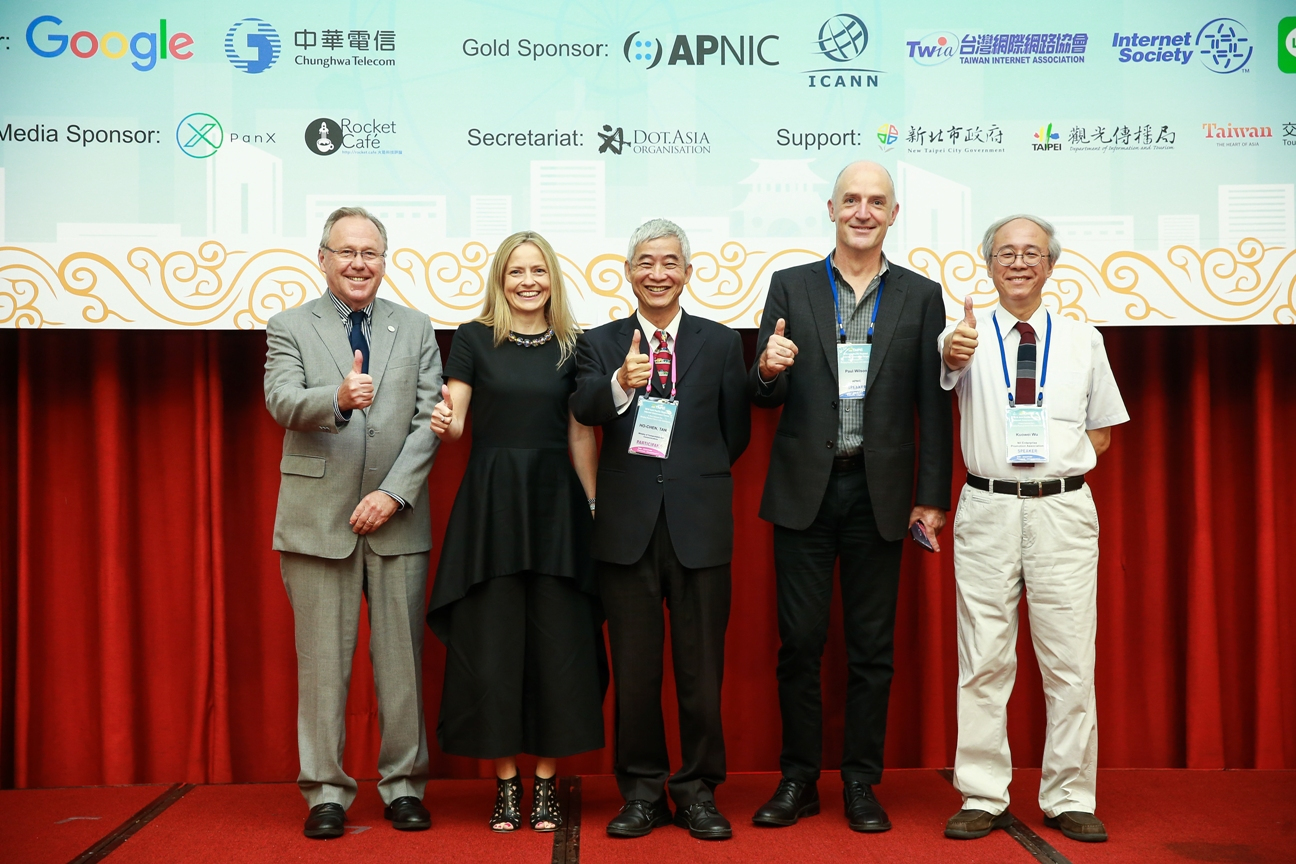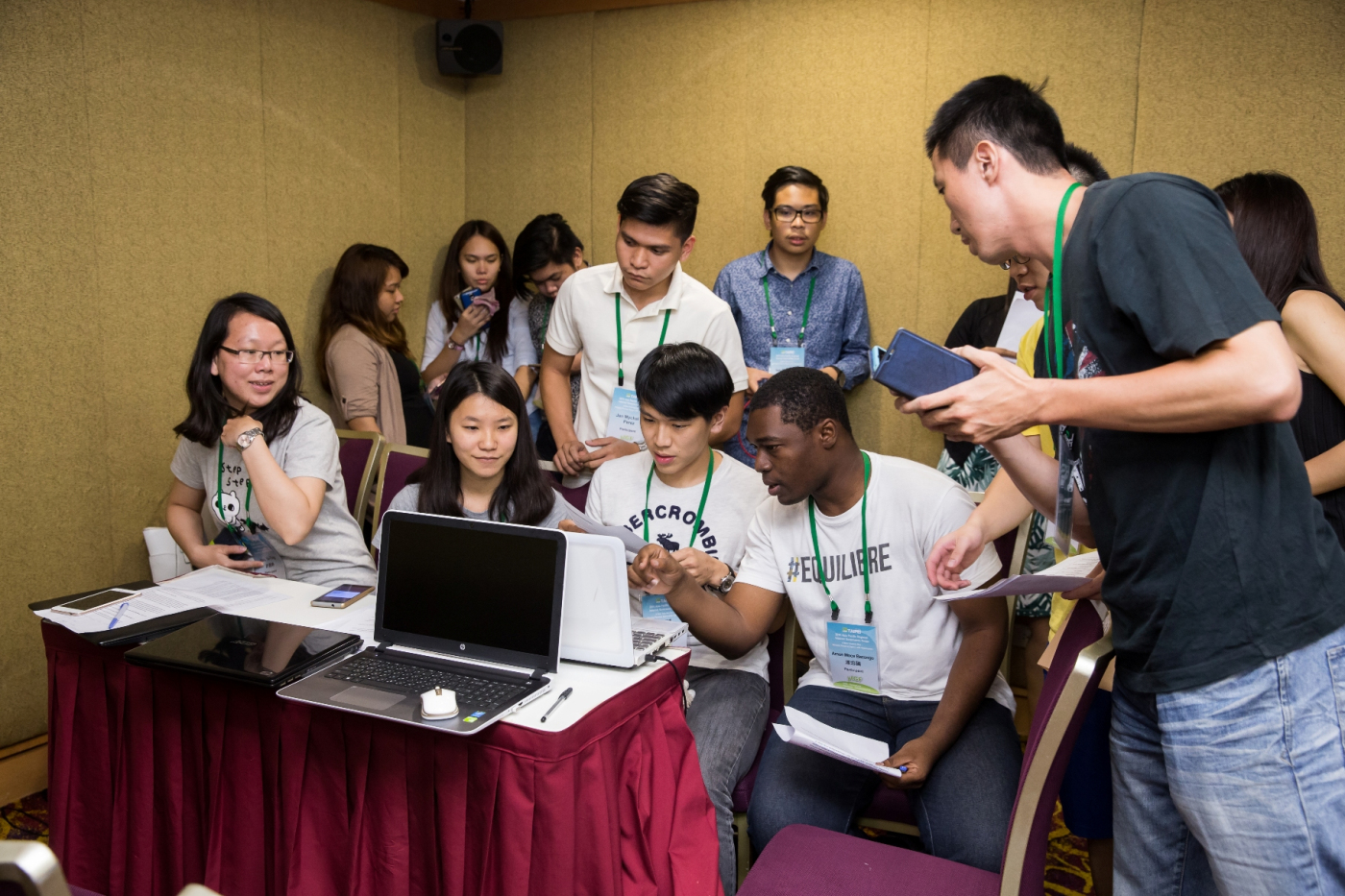
Last month, I attended the 2016 Asia Pacific Internet Governance Forum (APrIGF) in Taipei, Taiwan. It is a forum for discussions on Internet governance issues from the Asia Pacific regional perspective.
This was the second time I’ve attended the APrIGF, since the 2010 meeting in Hong Kong, as I have been more focused on global IGF discussions in recent years.
There were a number of familiar faces from the APNIC community at the meeting, including Paul Wilson, who is chair of the APrIGF, and Kuo Wei Wu, who served as the local host of the event.
Issues discussed
The name “Governance” may give a formal impression of the conference, and that the issues discussed are not relevant to the APNIC community or engineers. However, it is a relaxed and friendly conference, as you can see from the photos.
Several topics that were discussed required technical input to ensure policies adopted would not break how the Internet operates. These included:
- The responsibility of intermediaries in providing information to government/law enforcement agencies, for example, how much information should an ISP/content provider share about their customers?
- Security and management of Internet content
- Internet surveillance – can intrusive surveillance technology be justified?
With regard to the first point, some attendees shared what the situation is like in their country, including what criteria and how much information ISPs/content providers need to provide government/law enforcement agencies, in balance with protecting the privacy of communication.
I also organized a session to discuss the challenges and opportunities of IPv6 deployment in the region, which I’ve summarized in another post.
There was also a new session to share key updates from the global IGF during which we talked about how we can exchange experiences among national and regional IGFs, as well as ways to have improved two-way communication between regional and global IGFs.
Asia Pacific perspectives do make a difference
What surprised me the most about the conference was the enthusiasm of the attendees and the richness of discussion. When I have participated at the global IGF, the Asia Pacific has generally been the least vocal region. Because of this, I had assumed that discussions in the APrIGF were minimal, and that there was not much content to feed to the global forum; how wrong I have been.
Overall I found in all the APrIGF sessions I attended, all attendees were encouraged to share country-specific cases, and it was interesting to hear the reality of particular national environment/regulations rather than conceptual discussions; for example, there were different perspectives shared about the impact of the Trans-Pacific Partnership, and its e-commerce chapter, from participants of both signing and non-signing countries.
It was also encouraging to see many of the moderators come from countries where English is not widely spoken, to moderate the discussions professionally. I could see participants were comfortable in sharing their comments, without being afraid to speak up, with a good balance of input from different countries in the region (not only from countries where English is widely spoken such as Australia and New Zealand, nor just developed countries). From this experience, I really believe that if given the right environment, Asians do speak up.
Who said Asians are shy and quiet ? 🙂 if given the right environment and setting I think people do speak up #APrIGF2016
— izumi okutani (@izoku) July 29, 2016
I hope we can continue to have input from the technical community on Internet governance through the APrIGF discussions, and continue to have enhanced coordination between the Asia Pacific and global Internet governance arena. We do have good content to share from our region, and I believe the global community benefits by hearing from us.
Catch up on APrIGF sessions you missed
You can watch videos and read transcripts of sessions on the APrIGF website or read the Synthesis Paper, which is a compilation of key issues discussed during the Forum. Version 2 of the Synthesis Paper is now open for public comment, which I recommend you read, even if you don’t plan to submit comments, to understand some of the key Internet governance issues in our region.
The views expressed by the authors of this blog are their own and do not necessarily reflect the views of APNIC. Please note a Code of Conduct applies to this blog.


